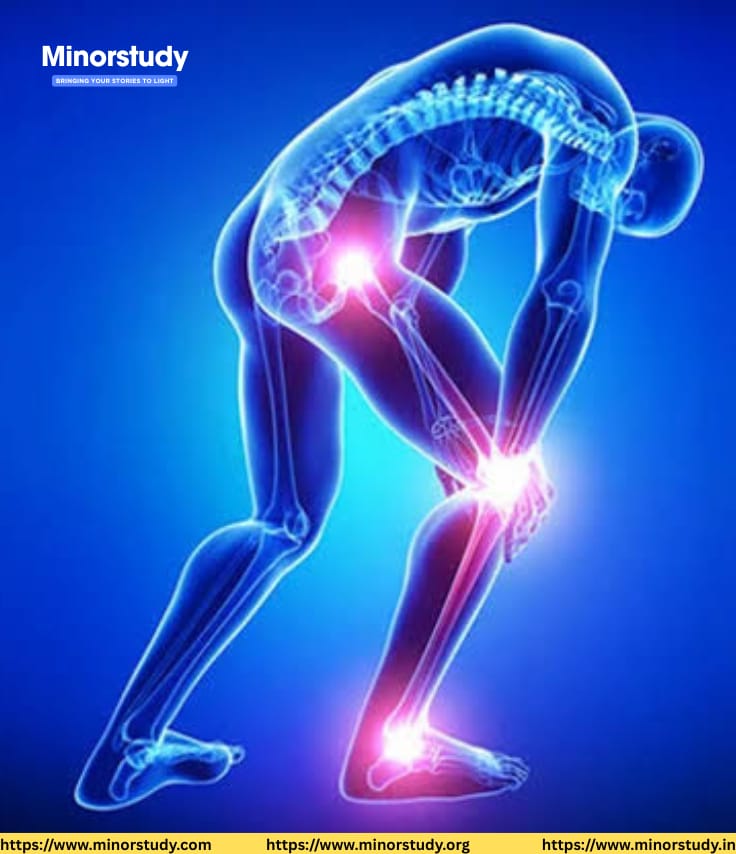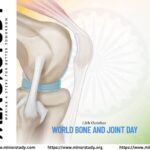👨⚕️ Orthopedic Doctors: The Life-Changing Healers Behind Strong Bones and Bright Futures
Orthopedic Doctors: When you walk, run, dance, lift, or even hold a pen — your musculoskeletal system is at work. And when that system fails you through injury, disease, or age, there’s one specialist who becomes your anchor: the Orthopedic Doctor.
- 👨⚕️ Orthopedic Doctors: The Life-Changing Healers Behind Strong Bones and Bright Futures
- 🏛️ History of Orthopedic Medicine
- 📅 Timeline of Orthopedic Development
- 📊 9 Life-Changing Facts About Orthopedic Doctors
- ❓ Frequently Asked Questions (FAQs)
- Q1: What does an orthopedic doctor do?
- Q2: What conditions do orthopedic doctors treat?
- Q3: When should I see an orthopedic doctor?
- Q4: What’s the difference between orthopedists and orthopedic surgeons?
- Q5: Are orthopedic treatments painful?
- 🎯 Significance in Society and Public Health
- 1. Supports Aging Populations
- 2. Boosts Economy through Workforce Health
- 3. Essential for Athletes and Performers
- 4. Critical During Emergencies
- 5. Improves Quality of Life
- 🙌 Observance and Professional Appreciation
- 💬 Wishing the Unsung Heroes in White Coats
- 💡 Why Orthopedic Doctors Are Important in Our Lives
- 🧠 Conclusion: Daily Life Impact of Orthopedic Doctors
- 🔗 Further Reading:
These are the surgeons, therapists, and bone whisperers who restore movement, reduce pain, and quite literally help people stand back on their feet.
This article dives into their history, importance, fun facts, and how their work shapes our daily lives and society.
🏛️ History of Orthopedic Medicine
The word “orthopaedics” (from Greek orthos meaning “straight” and paideia meaning “rearing of children”) was first used in 1741 by Nicolas Andry, a French physician. Originally focused on correcting skeletal deformities in children, it has since evolved into a sophisticated medical field covering bones, joints, ligaments, tendons, and muscles.
Key Historical Milestones:
18th Century – Nicolas Andry publishes “Orthopaedia”, introducing the term.
19th Century – Casts, braces, and surgical tools are developed to correct deformities.
World Wars – Explosions and trauma lead to major advances in fracture and limb surgeries.
20th Century – Hip and knee replacements become common.
21st Century – Robotic surgeries, arthroscopy, and biologics revolutionize treatment.
📅 Timeline of Orthopedic Development
| Year | Milestone |
|---|---|
| 1741 | Term “Orthopaedics” coined by Nicolas Andry |
| 1890 | First modern hip joint surgery |
| 1920s | Physical therapy becomes a branch of orthopedic recovery |
| 1960 | First total hip replacement by Sir John Charnley |
| 1980s | Arthroscopy (minimally invasive surgery) introduced widely |
| 2000s | Use of stem cell therapy and biologics begins |
| 2020s | Robotic-assisted orthopedic surgeries become mainstream |
📊 9 Life-Changing Facts About Orthopedic Doctors
They treat more than broken bones
From arthritis to sports injuries to spinal conditions, orthopedic doctors handle a wide range of musculoskeletal issues.They’re skilled surgeons and diagnosticians
Whether it’s a ligament tear or chronic back pain, they diagnose and create personalized treatment plans.Over 80% of orthopedic issues can be treated without surgery
Many patients recover through physical therapy, lifestyle changes, and medications.Orthopedics covers all ages
Pediatric to geriatric — orthopedic doctors treat people across the lifespan.They help in sports, defense, and emergencies
Every professional athlete and soldier relies on orthopedic support in their career.They’ve restored mobility for over 300 million people worldwide
Through procedures like hip and knee replacements.Minimally invasive techniques reduce recovery time
Today’s surgeries leave smaller scars and quicker healing.They partner with physiotherapists and pain specialists
Creating a holistic approach to healing and recovery.Orthopedic doctors are unsung mental health boosters
Mobility impacts mood and independence. Restoring movement can restore confidence.
❓ Frequently Asked Questions (FAQs)
Q1: What does an orthopedic doctor do?
Orthopedic doctors diagnose, treat, and prevent issues related to bones, joints, ligaments, tendons, and muscles. They can be surgeons or non-surgical specialists.
Q2: What conditions do orthopedic doctors treat?
They treat arthritis, fractures, dislocations, back pain, osteoporosis, ACL tears, and more.
Q3: When should I see an orthopedic doctor?
If you have persistent pain, reduced range of motion, injury, or joint swelling that doesn’t go away with rest, you should consult an orthopedic specialist.
Q4: What’s the difference between orthopedists and orthopedic surgeons?
All orthopedic surgeons are orthopedists, but not all orthopedists perform surgery. Some focus on non-surgical interventions.
Q5: Are orthopedic treatments painful?
With modern techniques, most procedures (even surgeries) are performed with minimal discomfort and faster recovery.
🎯 Significance in Society and Public Health
1. Supports Aging Populations
With increasing life expectancy, orthopedic care helps seniors maintain mobility and independence.
2. Boosts Economy through Workforce Health
Healthy joints and bones keep people at work, reducing absenteeism and increasing productivity.
3. Essential for Athletes and Performers
They help professionals recover quickly and safely, allowing them to continue their careers.
4. Critical During Emergencies
Natural disasters, road accidents, or combat injuries often require orthopedic expertise.
5. Improves Quality of Life
By restoring mobility, orthopedic doctors enable people to live fuller, happier lives.
🙌 Observance and Professional Appreciation
While there is no specific World Orthopedic Day, these professionals are widely honored on:
National Doctors’ Day (India: July 1)
World Spine Day (October 16)
World Bone and Joint Day (October 12)
Hospitals, medical colleges, and orthopedic societies often celebrate these days with:
Health camps
Free checkups
Public awareness campaigns
Surgical innovations and awards
💬 Wishing the Unsung Heroes in White Coats
Let’s take a moment to express heartfelt gratitude to the orthopedic doctors of the world:
“Here’s to the healers of pain, menders of bones, and givers of second chances. Thank you for helping us move forward — quite literally.”
💡 Why Orthopedic Doctors Are Important in Our Lives
They prevent disability, allowing children to run, parents to work, and seniors to stay independent.
They reduce pain, giving people freedom from constant discomfort.
They help in holistic rehabilitation, partnering with physical therapists and psychologists.
They educate society about posture, exercise, and injury prevention.
Their influence stretches beyond the hospital — into our homes, our sports arenas, our schools, and our future.
🧠 Conclusion: Daily Life Impact of Orthopedic Doctors
Orthopedic doctors restore movement, and by doing so, they restore life. Imagine a world where a mother couldn’t lift her child, a teacher couldn’t write on the board, or an athlete couldn’t play — that’s a world without orthopedics.
Their work is invisible to many but essential to all.
They help grandparents walk without pain.
They help students recover from accidents.
They help dancers, laborers, and executives alike.
Whether in surgery or through simple advice, orthopedic doctors make life livable — and for that, they truly are life-changers.








